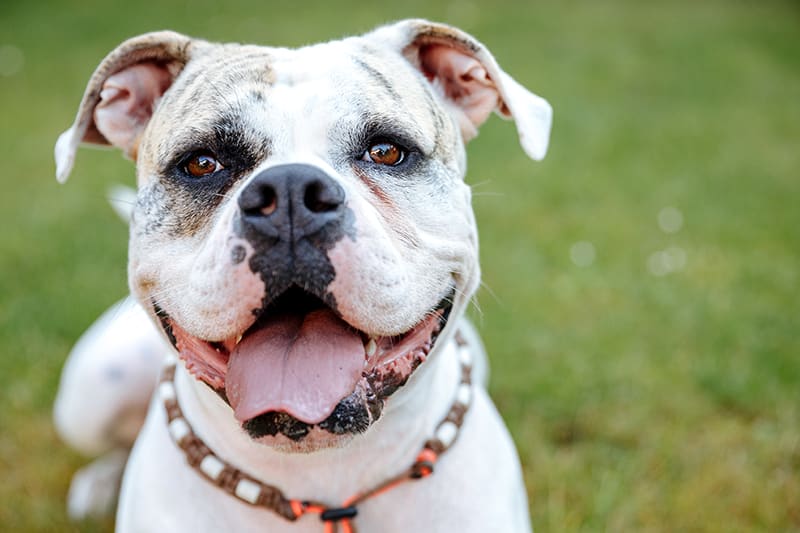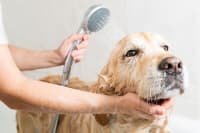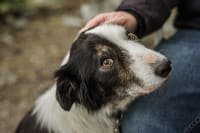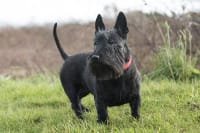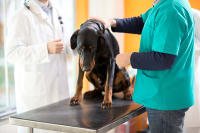Pet Care
Lumps & Bumps – Dogs & Skin Cancer
Finding a Lump on Your Dog
If you have found a lump or discolored patch of skin on your dog you’re bound to begin worrying about cancer. That said, it’s important for pet parents to remember that not all lumps and bumps are cancerous, and for those that are cancerous many are treatable when detected early. If you have found something suspicious on your dog take your pup to the vet for a full examination as soon as possible.
3 Types of Skin Cancer Seen in Dogs
Squamous Cell Carcinoma
Skin squamous cell carcinoma is the most commonly diagnosed form of skin cancer in dogs and typically seen in older animals. These tumors appear as raised wart-like patches or lumps that are firm to the touch and typically located on the dog’s head, lower legs, rear, and abdomen. Exposure to the sun may be a cause of squamous cell carcinoma, however, there could also be a link to papillomavirus. This form of cancer is frequently seen in white Bull Terriers, Dalmatians, Beagles, and Whippets.
Malignant Melanoma
Melanomas are raised bumps that are often (but not always) dark-pigmented and frequently found around the dog’s lips, mouth and nail bed. While most melanomas are benign they can be malignant. Malignant melanomas are a very serious threat to your dog’s health. These tumors grow quickly and have a high risk of spreading to other organs. Male dogs are more at risk of melanomas than females and certain breeds such as Schnauzers and Scottish Terriers also face an increased risk.
Mast Cell Tumors
Mast cell tumors are another type of cancer commonly diagnosed in our canine companions. This cancer occurs in the mast cells of the dog’s immune system. Mast cell tumors can grow anywhere on your pup’s skin, including internal organs however, some of the most common sites for mast cell tumors are on the limbs, lower abdomen, and chest. This form of skin cancer is most often diagnosed in dogs between ages 8 -10 years old. Some of the breeds facing an increased risk of developing this disease include: Boxers, Pugs, Rhodesian Ridgebacks, and Boston Terriers.
Diagnosing Dog Skin Cancers
To diagnose skin cancer in dogs, your vet may perform a fine needle aspiration in order to take a small sample of the tumor’s cells to examine or perform a biopsy in order to take a portion of the tumor’s tissue for examination. These samples will be sent to a lab to be analyzed, in order for your vet to provide you with an accurate diagnosis of your dog’s condition. To determine the extent of cancer in the body after the initial diagnosis, additional diagnostic testing can help to optimize treatment recommendations and more accurately predict prognosis.
Treatment for Skin Cancers in Dogs
Often dogs that are diagnosed with skin cancers in the early stages can be treated successfully and go on to live full active lives.
Cancer can be treated with several different therapies or treatment combinations, including surgery, chemotherapy, immunotherapy, targeted therapies or palliative care when appropriate. When it comes to the prognosis and treatment for cancer in dogs, options will depend on a number of factors, such as the type of tumor, the tumor’s location, how advanced the cancer is.
At Animal Hospital of Clemmons, our team of veterinarians is dedicated to providing the best care and treatment to sick pets, including dogs diagnosed with skin cancer.
Monitoring Your Dog’s Health
Spotting the signs of skin cancer while the disease is still in the early stages is the key to good treatment outcomes. Familiarizing yourself with all your dog’s lumps, bumps, and rashes, during your regular grooming routine, as well as visiting your vet for routine wellness exams can help to catch skin cancers in the early stages.
If you notice an unexplained or unusual lump or bump on your dog, or if you notice swelling around your dog’s toes consult your veterinarian as soon as possible. When it comes to your pet’s health it’s always better to err on the side of caution.
Note: The advice provided in this post is intended for informational purposes and does not constitute medical advice regarding pets. For an accurate diagnosis of your pet’s condition, please make an appointment with your vet.
If you discover a concerning lump or discolored patch of skin on your dog contact Animal Hospital of Clemmons right away to book an examination for your canine companion. Our veterinarians have experience diagnosing and treating cancer in dogs and cats.
Looking for a vet in
Clemmons?
We’re always accepting new patients, so contact our veterinary hospital today to book your pet’s first appointment.
Related Articles View All
Puppy Teething Tips for Pet Parents
Our Clemmons vets understand how trying it can be when your puppy starts teething. Teething pain often leads puppies to chew on things they shouldn’t – including your best shoes and furniture. Here are a few tips to help you and your puppy deal with your puppy’s teething.
Dog Grooming 101 – Grooming Different Coat Types
Although all dogs require brushing, bathing and general grooming, some require more care than others. Today our Clemmons pet grooming team explains how to care for dog coats of different textures and lengths.
What To Do About Your Dog’s Stinky Breath
Do you avoid getting close to your pup because their stinky breath is unbearable? Bad breath is common in dogs — especially in senior dogs — and can be a sign of a serious health issue. Our Clemmons vets explain some causes of dog bad breath and how you can help to treat or even prevent it.
Why should I enrol my pet in a Wellness Plan?
If your veterinary clinic offers Pet Wellness Plans you may be curious as to how these plans work and whether they are worth signing up for. Today, our Clemmons vets share 4 benefits to consider when deciding whether a Pet Wellness Plan is right for you and your pet.
Dog Acupuncture & The Conditions It Can Treat
Our Clemmons vets know that if your pet is suffering from a health issue you will want to do all you can to help them feel better. Pet acupuncture can be a noninvasive way to help improve your pet’s rehabilitation. Here’s a bit about how acupuncture for dogs works and when it can be used.

